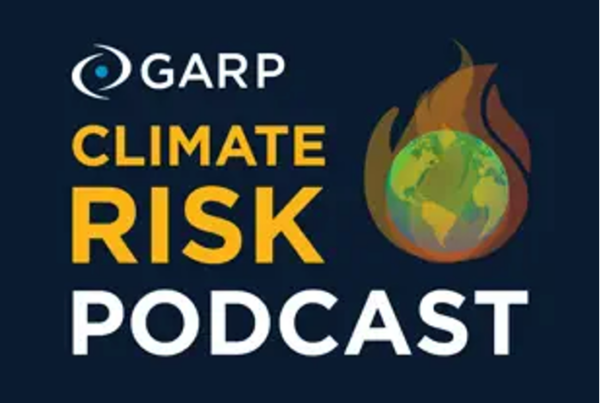By David Schimel, Ph.D., and Pooja Khosla, Ph.D. The authors are, respectively, the Chairman and the Chief Innovation Officer of Entelligent.
In the wake of intensifying climate change, nations worldwide are recognizing the pressing need to integrate climate risk assessment in their policies and industries. Against this backdrop, Taiwan has steered a course that deserves more attention as the embodiment of an activist approach that balances both an internationalist and an independent spirit.
Taiwan’s response to climate risk is undergoing a transformation as its leaders, businesses and investors realize the far-reaching consequences of climate change. The transformation is happening in its political, cultural and business spheres. Taiwan’s political landscape is progressively adapting to the urgency of climate change, as government initiatives promote sustainability as an essential component of national resilience and economic development. At the same time, environmental consciousness is deeply rooted in Taiwan’s culture, with a significant portion of its population, particularly the younger generation, standing as vocal advocates for climate awareness and action. And Taiwanese businesses are slowly incorporating climate risk assessment into their strategies; while the pace of adoption varies across sectors, the movement towards climate-aware practices is undeniable.
With many management and mitigation initiatives already in place, Taiwan now has an opportunity to move further onto the leading edge of sustainability by adopting climate risk pricing as an essential part of its strategy.
In this article, we look at Taiwan’s current standing in climate risk management, both politically and economically, including its regulatory framework and sector-specific actions. And we discuss how the adoption of climate benchmarks can be a catalyst for meaningful further advancement in Taiwan’s approach to climate risk and sustainable economic growth.
Taiwan’s Climate Risk Management Landscape
The stakes are high. To be sure, Taiwan is a relatively small nation, not just in terms of population and land area, but also in relative GDP terms: In 2021, its GDP represented roughly 0.73% of global GDP. But the island nation is heavily exposed to climate damages. A 2017 analysis by the Ministry of Science and Technology reported that:
- Surface temperature in Taiwan has been increasing for 100 years.
- Seasons in Taiwan have changed significantly.
- Sea level in Taiwan has been rising in the past few decades.
- Taiwan’s dry and wet seasons have become more distinct.
- Extreme weather events have increased in Taiwan, including frequency of extreme high temperatures, number of extreme rainfall days and proportion of severe typhoons.
Current Progress and Future Prospects
In confronting climate change and building sustainability, Taiwan faces distinctive challenges. Owing to its unique international status, Taiwan is neither a member of the United Nations nor a signatory of the Paris Agreement. Nonetheless, it has actively addressed climate change under the United Nations Framework Convention on Climate Change (UNFCCC) — for which it independently announced its official target in 2015. As a follow-on measure, Taiwan released to the international community its Net-Zero Emissions Roadmap and Strategy in March 2022.
While setting these sustainability and climate risk-management goals, Taiwan has also passed many high-impact laws, including the Renewable Energy Development Act of 2009, the Greenhouse Gases Emission Reduction and Management Act of 2015 and the Electricity Act of 2017.
Taiwan’s regulatory landscape is also evolving to address climate risk. The government is working on comprehensive regulatory frameworks that align with global climate standards. Although the specific regulations are still in development, the direction is clear: a greater emphasis on climate risk disclosure and mitigation. Nonetheless, businesses across all key sectors are integrating climate risk management into their core operations:
- Semiconductors: Taiwan’s semiconductor industry is pioneering sustainability. WIN Semiconductors achieved a 1,266-ton carbon emissions reduction over the past year, and received the Climate Disclosure Project’s A- rating in 2022 (up from a B in 2021); WIN’s green products account for 13% of its total revenue with a growth rate of 19%. Specialized semiconductor provider ASPEED Technology Inc. is targeting Scope 1 and 2 emissions reduction of 42% by 2030, following small and medium-sized enterprise route of the Science-Based Targets Initiative (SBTi). Among other things, ASPEED is driving green innovation through energy-efficient chip technology, eco-friendly product applications, and employee-driven green R&D, and has established a trade secret registration system that recognizes and rewards green innovation. And Vanguard International Semiconductor Corporation in December 2022 became the first Taiwanese semiconductor manufacturer to join the RE100 program, committing to 100% renewable electricity for its global operations by 2040.
- Technology: Taiwan’s technology sector is venturing into green technologies, making substantial investments in renewable energy and electric vehicles, companies such as Innodisk Corp., a key player in data storage hardware, has made substantial contributions to climate transition within the technology sector. Innodisk has aligned itself with the global community’s sustainability goals under RE100, committing to Net-Zero emissions by 2050 and a 50% reduction in carbon emissions by 2030.
- Healthcare and Biotech: The healthcare and biotech industries are also recognizing the importance of climate risk assessment. These sectors are addressing environmental, social and governance factors within their research and development processes while developing innovative solutions for global health challenges. Companies such as the biotech TCI Co., have become a beacon for sustainable practices. TCI aims to achieve 100% renewable energy use by 2030, implement an energy management system by 2026, increase energy productivity by 35% in 2040, and reduce absolute emissions across scopes by 2030. Additionally, the company has gained permission to join the Alliance for Water Stewardship for water resource management.
Pricing Climate Risk
Taiwan’s economic stability hinges on its capacity to understand, quantify, and price climate risk. Climate-related impacts, such as extreme weather events and sea-level rise, pose significant threats to industries. Therefore, it is crucial to assess these risks proactively to ensure economic stability and long-term cost savings.
In the face of Taiwan’s growing exposure to climate risks, climate models have become essential tools for investors. These models provide granular insights into the specific vulnerabilities and opportunities shaped by Taiwan’s unique geographical location and economic/policy ecosystems. Investors can harness these insights to make informed decisions, guarding their portfolios against potential climate-related losses while positioning themselves to benefit from climate-aware sectors like renewable energy and resilient infrastructure.
Additionally, by engaging in collaborative efforts with global climate and energy ecosystems in climate modeling, Taiwan’s investors can access a broader spectrum of insights that transcend borders. In a globalized economy where climate change knows no boundaries, global climate models empower investors to navigate the evolving climate landscape. These models are not merely predictive; they are strategic assets for shaping resilient, diversified investment portfolios that not only withstand climate challenges but also thrive in a market increasingly shaped by climate awareness.
In response to global trends and Taiwan’s commitment to a net-zero future, the Taipei Exchange has partnered with FactSet, a leading global financial platform, and Entelligent, an industry-leading climate data and analytics firm. This collaboration has led to the creation of the TPEx FactSet Smart Climate Index Series, Taiwan’s first climate benchmark. This index offers valuable insights into climate transition risk and facilitates the reshaping of climate-aware portfolios for future investments.
This development has the potential to be a game changer for Taiwan. The TPEx FactSet Smart Climate Index Series provides investors and asset managers with a valuable tool to align their portfolios with climate transition objectives, foster innovation, and drive meaningful climate risk management and sustainable economic change. Embracing this benchmark empowers investors to make profitable and sustainable choices, propelling Taiwan towards a resilient, low-carbon, and climate-aware future.
Despite Taiwan’s relatively modest size, it wields substantial economic influence globally, notably through its dominant semiconductor manufacturing sector. Ensuring that Taiwan’s growth is sustainable, inclusive, and progressive is both a national responsibility and a global necessity. By adopting climate-aware practices and redirecting capital towards sustainable and innovative industries, Taiwan can take the lead in building a resilient economy prepared for future challenges.





